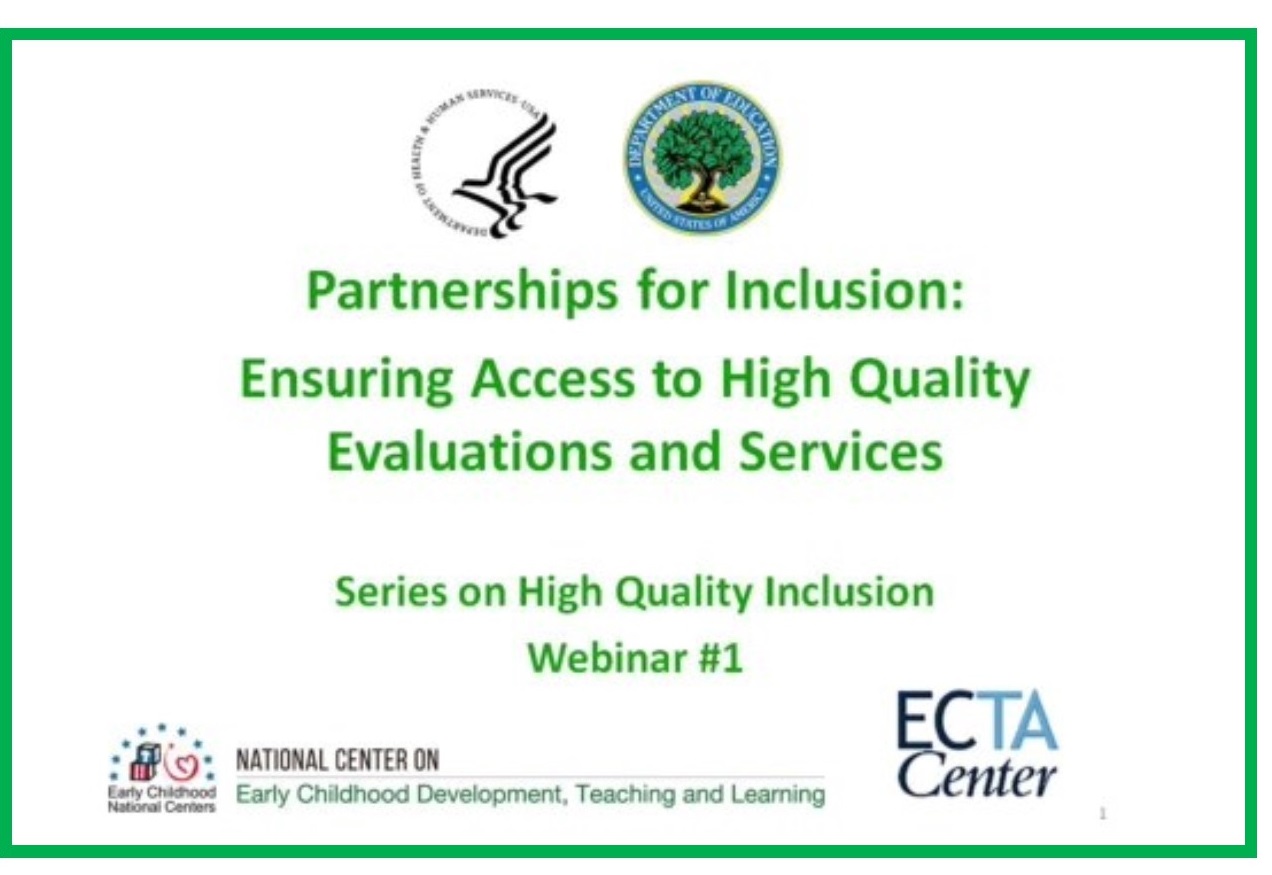About webinar #1: FPG senior research scientist Pam Winton moderates a federal panel for the first webinar in the new series on high-quality inclusion from the National Center on Early Childhood Development, Teaching, and Learning. Research has long demonstrated that high-quality inclusion benefits children with and without disabilities, and that non-inclusive environments can impact learning negatively. Each of the three webinars in this series will focus on one of the three essential features of high quality inclusion: access, participation, and support.
The opening webinar uses the joint policy statement on inclusion from the DEC and the NAEYC to define access as "providing a wide range of activities and environments for every child by removing physical barriers and offering multiple ways to promote learning and development."
In this webinar, federal leaders address screening, referral, evaluation, and the eligibility process for the Individuals with Disabilities Education Act (IDEA) services, as well as resources available for these processes. Participants learn about Response to Intervention (RTI) and its relationship to screening, evaluation, and referral. Additionally, the first webinar covers Head Start policy requiring at least 10 percent of enrollees to be children with disabilities identified under IDEA, as well as each sector's role in ensuring that young children with diagnosed or suspected disabilities receive the evaluations, services, and supports they need to learn and develop to their maximum potential.
Planners designed the webinar to benefit a wide-ranging audience: Head Start directors, disability coordinators, and mental health consultants; local preschool disability coordinators; Pre-K specialists and early interventionists; child care TA specialists; higher education faculty in two- and four-year early childhood programs; and State Part C and 619 coordinators.
 Watch it now
Watch it now